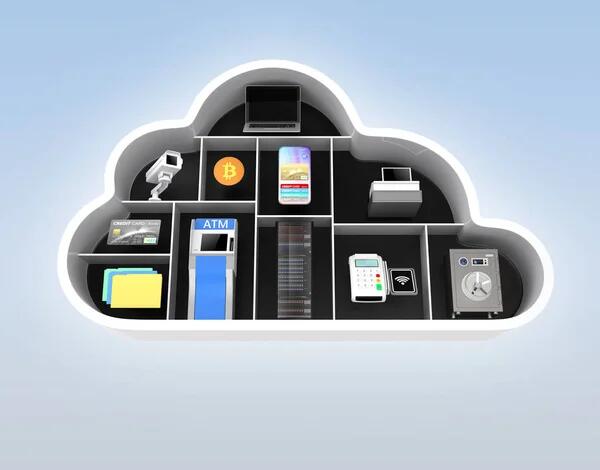Technological Advancements: Revolutionizing the Diesel Supply Chain and Production

Diesel fuel, the lifeblood of countless industries, is poised for a major transformation as technological advancements reshape the supply chain and production landscape. From AI-powered optimizations to sustainable biofuel innovations, the diesel industry is embracing a wave of change that promises to redefine its future.
1. How Will AI Empower the Diesel Supply Chain?
Artificial intelligence (AI) is emerging as a game-changer for the diesel supply chain. AI-driven algorithms can analyze vast volumes of data, identify inefficiencies, and optimize operations in real-time.
Table 1: AI's Impact on Diesel Supply Chain
| Area | AI Applications | Benefits |
|---|---|---|
| Demand Forecasting | Predictive models analyze historical data and market trends to forecast future demand, reducing inventory fluctuations. | Reduced overstocking and stockouts, improved cash flow. |
| Inventory Management | AI systems monitor inventory levels, anticipate demand variations, and trigger automated replenishment orders. | Optimal inventory levels, reduced holding costs, and improved logistics efficiency. |
| Logistics Optimization | Route planning algorithms determine the most efficient routes for transportation, considering factors like traffic, weather, and vehicle performance. | Reduced transportation costs, quicker deliveries, and improved fuel efficiency. |
| Predictive Maintenance | AI sensors monitor equipment performance and predict potential failures, enabling proactive maintenance. | Reduced downtime, improved equipment longevity, and optimized maintenance schedules. |
2. What Role Will Automation Play in Diesel Production?
Automation is transforming diesel production facilities, increasing efficiency and reducing human error. From robotic welding to automated inspection, technology is redefining the manufacturing process.
Table 2: Automation in Diesel Production
| Area | Automation Applications | Benefits |
|---|---|---|
| Welding | Robotic welding systems weld components with precision and speed, improving quality and reducing labor costs. | Consistent weld quality, increased throughput, and enhanced safety. |
| Inspection | Automated optical inspection systems scan components for defects and ensure compliance with quality standards. | Enhanced product quality, reduced human error, and improved safety. |
| Material Handling | Automated guided vehicles (AGVs) transport materials and products within the production facility, reducing manual labor and increasing efficiency. | Optimized material flow, reduced lead times, and improved inventory control. |
| Process Control | Plant automation systems monitor and control key production processes, maintaining optimal conditions and minimizing interruptions. | Consistent product quality, increased productivity, and enhanced process efficiency. |
3. How Can Biofuels Impact the Diesel Landscape?
Biofuels, derived from renewable sources like plant oils and algae, offer a sustainable alternative to traditional diesel fuel. As technology advances and production costs decline, biofuels are gaining momentum as a cleaner and greener option.
Table 3: Biofuels in the Diesel Sector
| Biofuel Type | Production Process | Environmental Benefits |
|---|---|---|
| Biodiesel | Made from renewable plant oils, animal fats, or waste vegetable oils. | Reduces greenhouse gas emissions, improves air quality, and enhances engine performance. |
| Renewable Diesel | Produced from sustainable feedstocks like algae or plant oils. | Virtually identical to petroleum diesel, with minimal engine modifications required. Reduces carbon emissions, improves air quality, and enhances fuel efficiency. |
| Green Diesel | Derived from algae or other plant matter using a two-step process. | Significantly reduces greenhouse gas emissions, improves engine performance, and supports domestic energy production. |
4. What Technological Innovations Will Shape Future Diesel Engines?
Diesel engine technology is undergoing constant evolution, propelled by the need for improved efficiency, lower emissions, and enhanced performance. Advanced injection systems, turbocharging, and exhaust gas treatment are among the key innovations driving the future of diesel power.
Table 4: Diesel Engine Technological Advancements
| Innovation | Benefits |
|---|---|
| Common Rail Fuel Injection | Provides precise fuel control and injection timing, optimizing combustion and reducing emissions. |
| Turbocharging | Increases engine power and torque by utilizing exhaust gas energy to compress intake air. |
| Variable Valve Timing | Adjusts valve timing to optimize engine performance at different operating conditions. |
| Selective Catalytic Reduction (SCR) | Removes nitrogen oxides (NOx) from exhaust gases using a urea solution. |
| Diesel Particulate Filter (DPF) | Traps and removes soot and particulate matter from exhaust emissions. |
5. Sustainability and Diesel: How Will Technology Drive Greener Production?
Amid growing concerns about environmental impact, the diesel industry is investing heavily in sustainable technologies to reduce emissions and promote a greener future.
Table 5: Sustainability in Diesel Production
| Technology | Benefits | |
|---|---|---|
| Renewable Energy Integration | Incorporating renewable energy sources, such as solar and wind, into diesel production facilities. | Reduced carbon footprint and lower energy costs. |
| Waste Reduction | Optimizing waste management practices to minimize environmental impact. | Reduced waste generation, lower disposal costs, and compliance with environmental regulations. |
| Energy Efficiency Improvements | Implementing energy-efficient technologies and processes throughout the production chain. | Reduced greenhouse gas emissions and lower operational costs. |
| Innovative Emission Control | Developing advanced emission control technologies beyond the current standards. | Reduced emissions, enhanced environmental protection, and improved public health. |
Interaction with Readers
As technology continues to reshape the diesel industry, we are eager to know your thoughts and insights. What are your predictions for the future of diesel production and supply chain? How do you believe these advancements will impact your business or industry? Share your opinions and ideas in the comments below.
Please indicate:COINLIVEBASE » How will technological advancements affect the supply chain and production of di